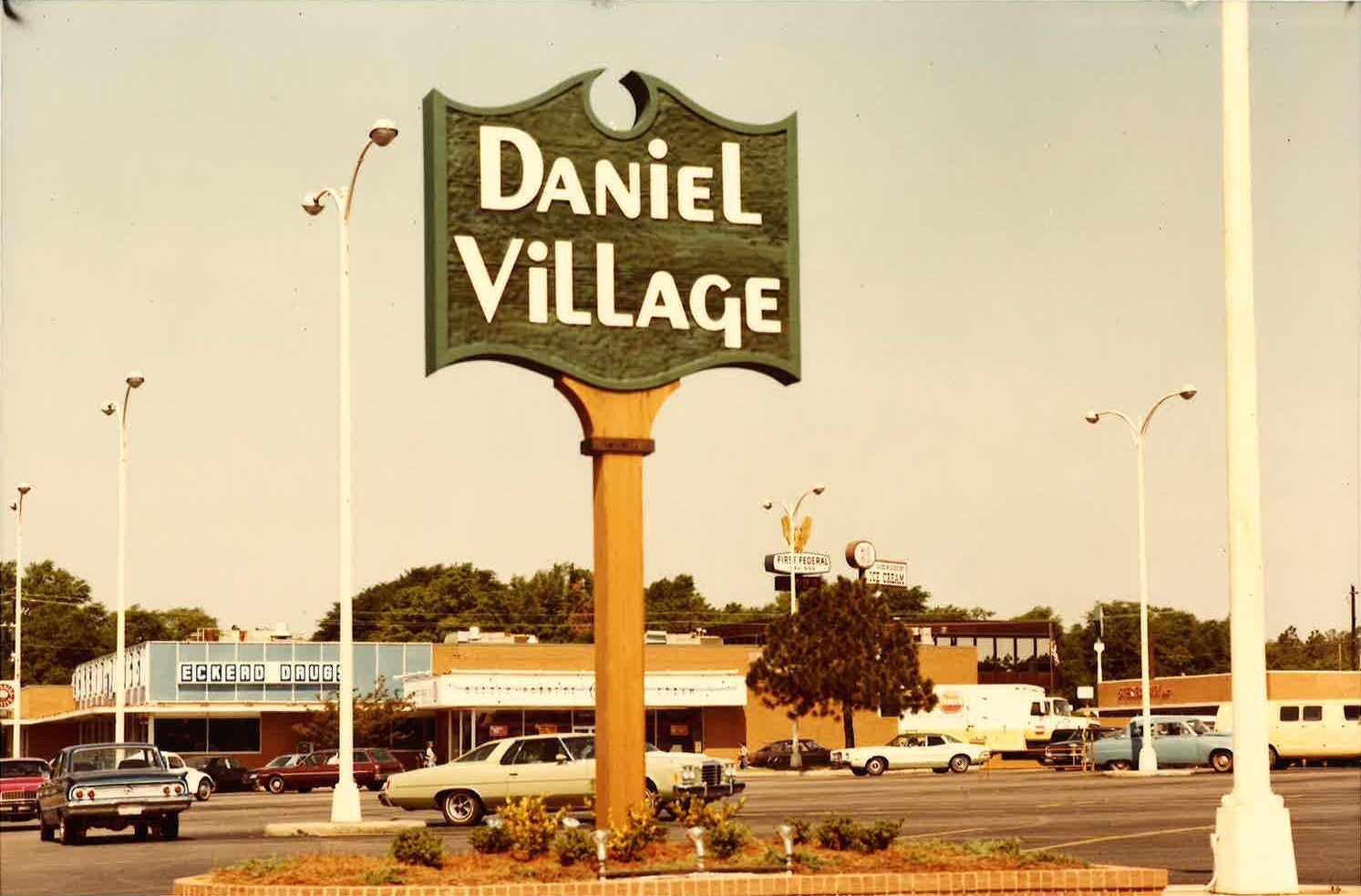Augusta’s oldest strip mall/shopping center is about to turn 70 and has served generations of Augusta with its convenient “one-stop” shopping experience. The location also helped launch the career of a well known Las Vegas magician.
Daniel Village predates both Surrey Center and National Hills and was the first location to offer an indoor movie theater outside of the Broad Street corridor downtown.
MORE: Downtown business owners speak on the impact of Saturday morning shooting
The 17-acre property cost developers $147,840 in 1955 when the buildings were constructed; and, it would take a combination of factors and perfect timing to make the shopping center a reality and a success.
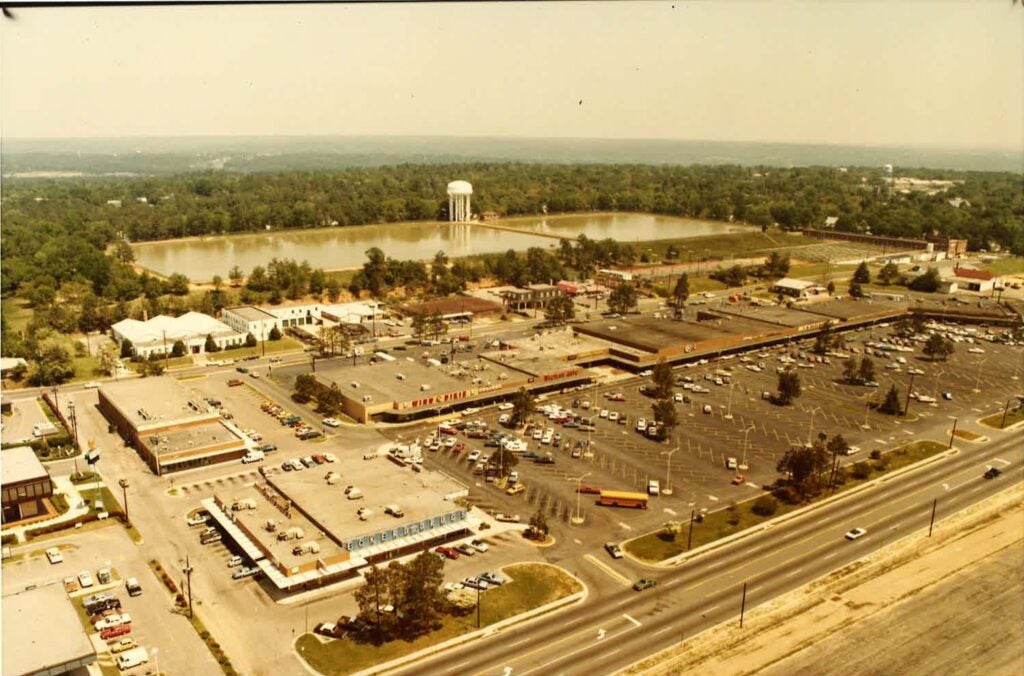
According to press reports at the time, the city along with (then) Camp Gordon, were building a new highway so that the fort had direct access to downtown. The downtown area remained the retail core for the city, but the city was growing and changing.
According to the late Augusta historian, Ed Cashin, decades earlier, the U.S. Army had abandoned the World War I era Camp Hancock and much of the land was left untouched as people were not building many new homes due to the Great Depression.
This all changed after World War II when soldiers were returning from Europe and Asia and the demand for new housing surged. New homes sprung up in the area from North Leg all the way to Daniel Field Airport.
The airport was also changing.
There was no longer a need to house military aircraft at the site, and the new Bush Field Airport was designed to handle big jets that could not land at Daniel Field. Rather than totally dismantle the old airport, it was decided the airport would service mainly single engine planes; therefore it could operate with shorter runways.
The hangars that once sat on the Daniel Village site were dismantled and the 17-acre property was put up for sale; it was almost immediately snapped up by Sherman and Hemstreet Realtors, with the help of Georgia Railroad bank.
Not only was Augusta inundated with war heroes coming home, but people’s shopping habits had changed. It used to be that going shopping was an all-day affair prior to the motorcar and even after.
For people that did not live downtown, shopping usually occurred on a Saturday. A wagon would have to be hitched or a family would take the trolley to downtown Augusta.
The modern grocery store concept had not yet come along, so shoppers would go to the butcher for meat, the mercantile for dry goods, Rubens Department Store for dressy clothes and the fabric store to make kid’s play clothes.
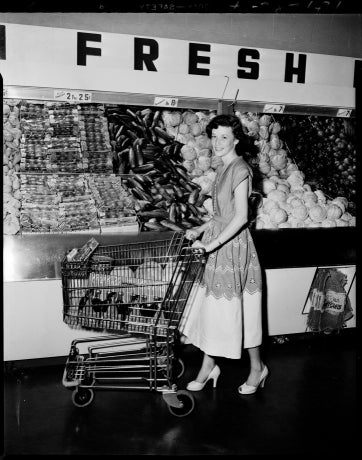
Even after the automobile, shopping was still an all day event and people would have to pay to park and walk block after block in the broiling sun. The most popular stores on the strip were the ones with a sign reading “ice cold air-conditioning!”
Technology was also changing rapidly, refrigeration lessened the need for farmers markets and pasteurization pretty much eliminated the milkman. According to the Encyclopedia of Oklahoma History and Culture, in 1936, Sylvan Nathan “Syl” Goldman invented and patented the grocery cart.
These inventions meant that all kinds of goods could be offered at a “grocery store” and Piggly Wigglys opened up all over the South.
The Daniel Village concept was to bring the downtown experience to the suburbs by providing a long strip of connected buildings that offered items and services most wanted by the public.
The concept did break with a centuries old tradition of retailers operating a shop on the first floor and living in the second and third floors; the modern layout of Daniel Village called for the entire complex to be one story.
According to the Augusta Chronicle reports of the time, the complex opened its doors in 1955 with an anchor “super-market,” a repair shop, a barbershop for men, a hair salon for ladies, a floral shop and a launderette. The complex would grow by adding stores like Woolworths and Belks as well as the movie cinema.
Cashin writes in his book, “The Story of Augusta,” that the opening of Daniel Village was an “ominous” sign for retail downtown, with many stores totally relocating to the new strip mall. Not only could a person walk the length of two city blocks to find everything they needed, but parking was free.
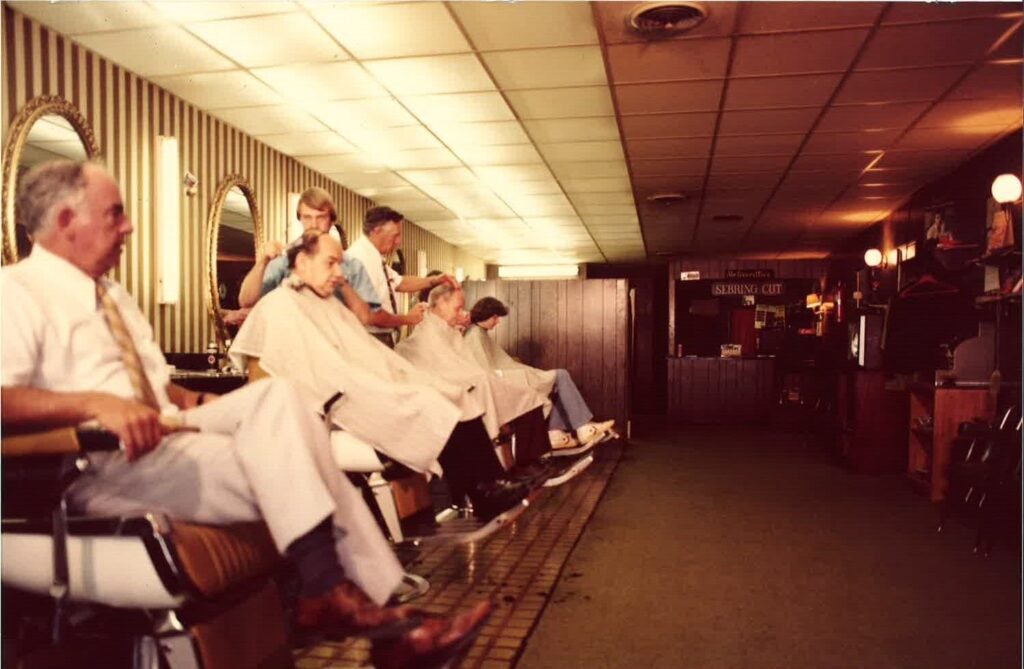
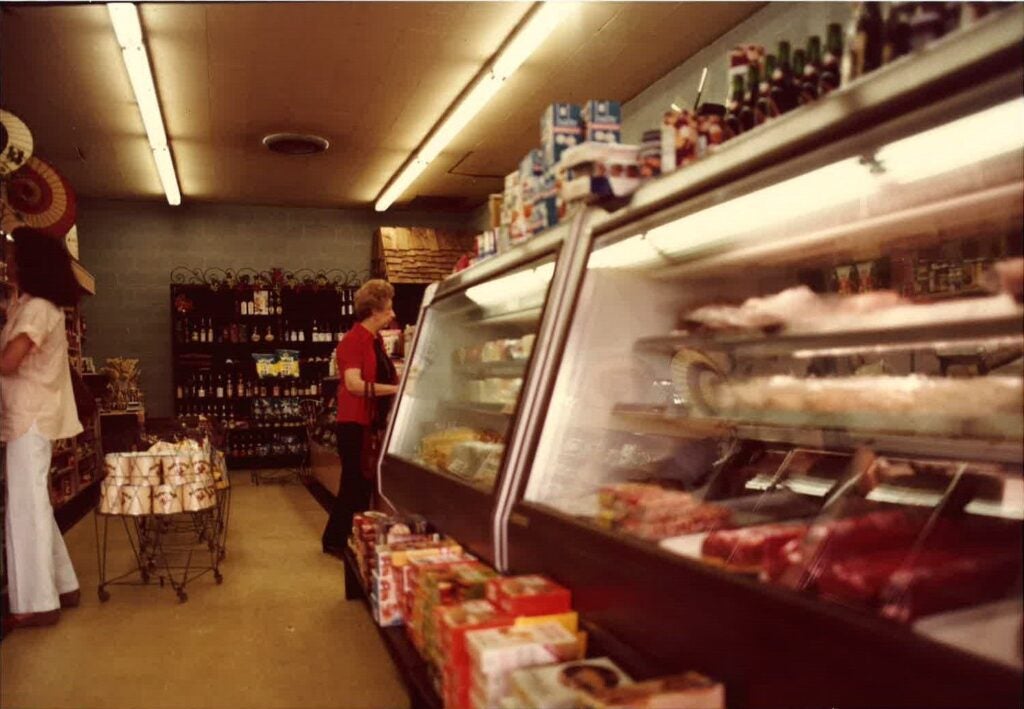
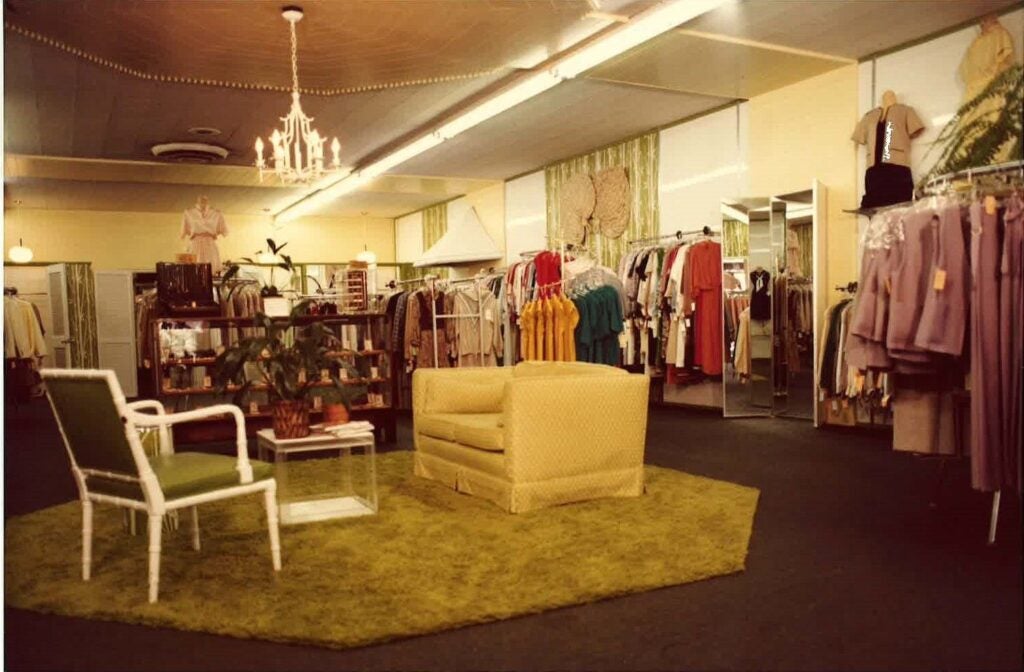
Daniel Village would hold seasonal festivals with rides for kids, entertainment, art and, of course, massive sales. Some of the festivals were so largely attended that Daniel Field would shut down one of its tarmacs for parking.
One of the most popular performers to appear at the festivals in the 1970s was a young magician known as Dixie Dooley. To the delight of kids, Dooley would perform his illusionist routines; and he later moved to Las Vegas, where today, he remains one of the most popular acts on the Vegas Strip.
The rise of the malls decimated the downtown area and Daniel Village was affected as well. Big stores like Belks and Casual Corner pulled out and most of the smaller boutique shops left as well. The ones that were left withered on the vine.
The cinema also suffered because it was outdated, equipped to show only one movie at a time. According to Cinema Treasures, the operators tried to “twin” the theatre so that it could show two movies simultaneously, but it actually made things worse as movie goers could hear noise from the concession stands bleeding into the theaters.
The theater limped along showing dollar movies, but finally threw in the towel in the early 1990s.
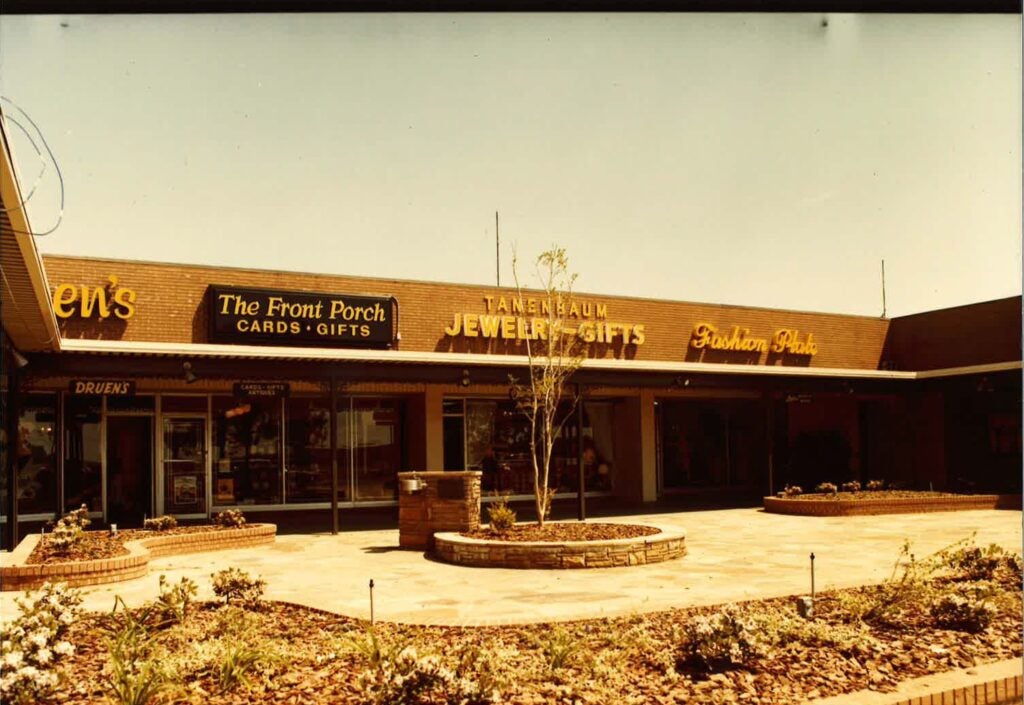
The criminal element also moved in.
According to press reports from 1994, the wife of a city councilman was assaulted and robbed, causing outrage and fear in the community.
The next year, the owners invested $5 million to renovate and modernize the structure.
The addition of a sheriff’s substation quelled the crime and the rise of the Village Deli from a little hole-in-the wall to one of Augusta’s favorite restaurants helped bring back the crowds. It also appears that the owners sought to bring back the convenience concept instead of boutique shops anchored by one or two large stores.
The modern Daniel Village has two banks, a grocery store, a barbershop, a hair salon, an ice cream parlor and a hardware store, just like it did way back when.
…And that is something you may not have known.
Scott Hudson is the Senior Investigative Reporter and Editorial Page Editor for The Augusta Press. Reach him at scott@theaugustapress.com

